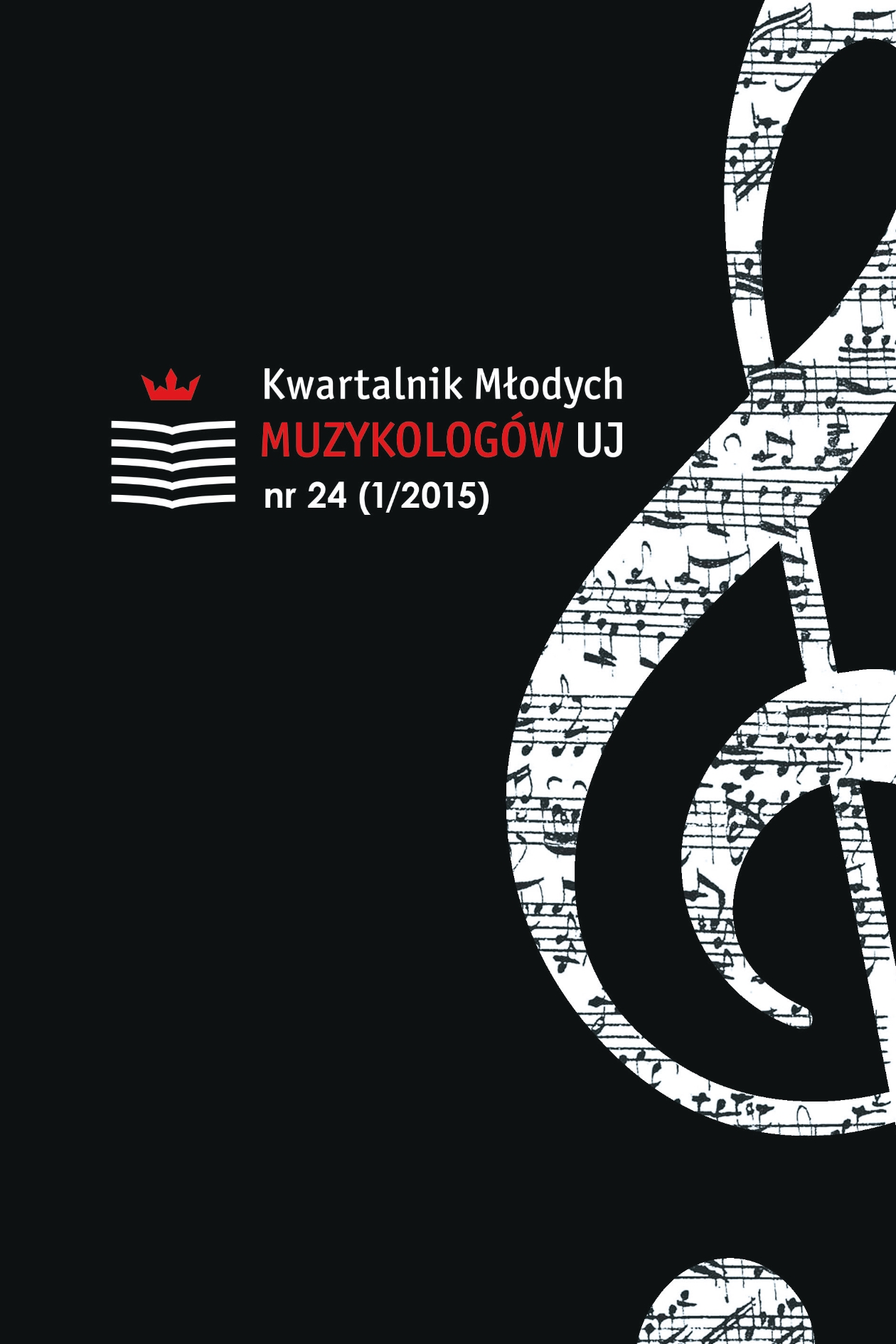Status muzyków dworskich Rzeczypospolitej w końcu XVI i w XVII wieku
Status of the court musicians living in the Polish Common Wealth (Poland and Lithuania) in the late 16th and 17th centuries
Author(s): Alicja RyczkowskaSubject(s): History, Social Sciences, Theatre, Dance, Performing Arts, Fine Arts / Performing Arts, Cultural history, Museology & Heritage Studies, Music, Essay|Book Review |Scientific Life, General Reference Works, Geography, Regional studies, Library and Information Science, Regional Geography, Archiving, Cataloguing, Other, Sociology, Social history, Modern Age, 16th Century, 17th Century, Cultural Essay, Societal Essay, Source Material, Sociology of Art
Published by: Koło Naukowe Studentów Muzykologii UJ
Keywords: status of musicians; court musicians; Polish Common Wealth; late 16th and 17th centuries; comparison of musicians salaries
Summary/Abstract: Most musicians working at the royal and aristocratic courts enjoyed good status despite the difficult political and economic situation of the Polish Common Wealth in the late 16th and 17th centuries. The height of the status of court musicians depended among others on their place of employment, origin, sex, professional roles and musical specialty. This article focuses on the relationship between the status of the musicians and their origin, sex, workplace and salaries. We compared court musicians’ salaries to demonstrate differences in their material status. The few preserved information about the salaries of the Polish court musicians was analyzed in this study. These were wages of the royal musicians and wages of the musicians employed at the courts of Leon Lew Sapieha, Zamoyscy, prince Dominik Ostrogski-Zasławski and hetman Adam Mikołaj Sieniawski. The results are presented descriptively and in the table and graph.
Journal: Kwartalnik Młodych Muzykologów UJ
- Issue Year: 2015
- Issue No: 01 (24)
- Page Range: 24-45
- Page Count: 22
- Language: Polish

